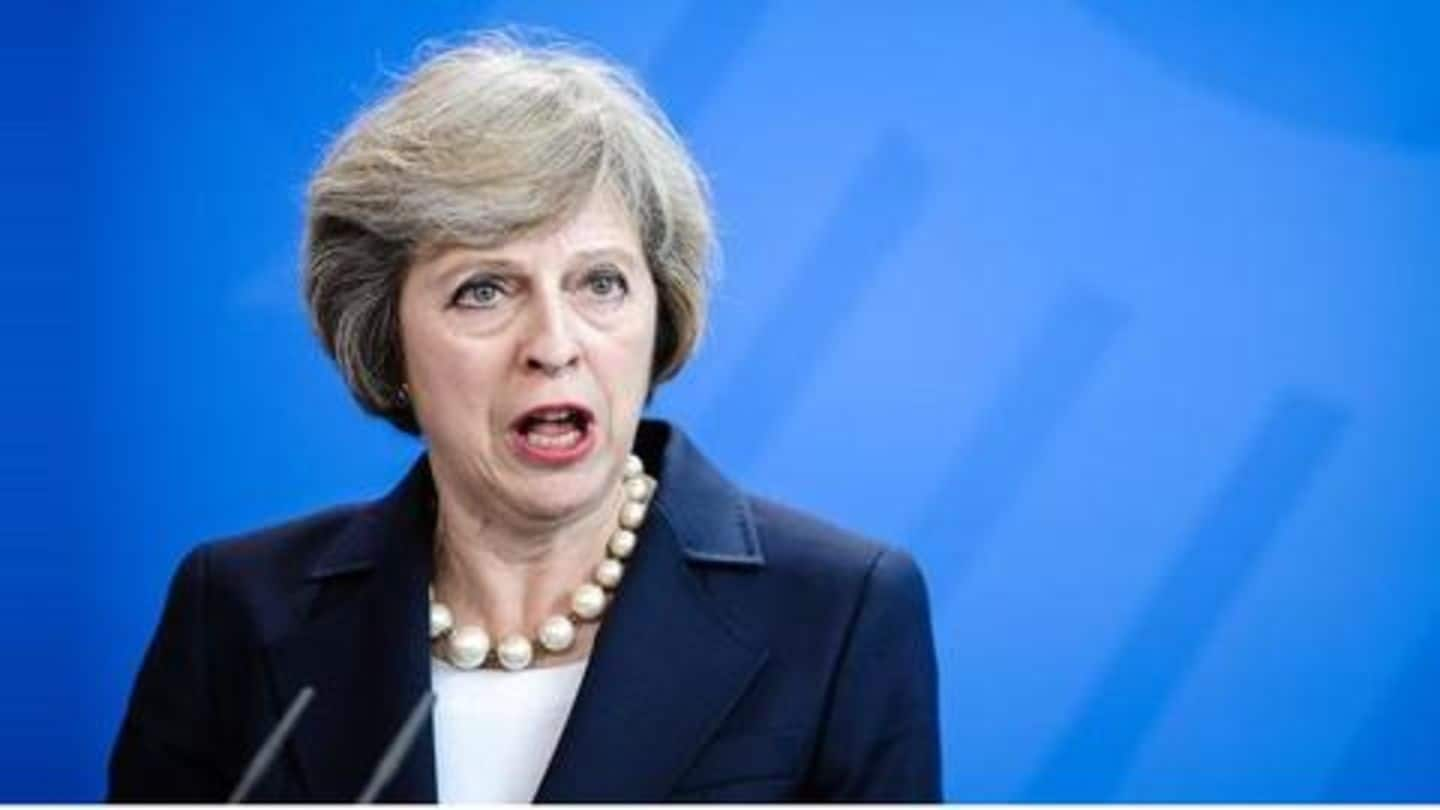
UK PM May faces no-confidence threat after top officials quit
What's the story
Embattled British Prime Minister, Theresa May, yesterday faced a possible "coup" after Brexit Secretary Dominic Raab, Indian-origin minister Shailesh Vara and two other ministers resigned from her divided Cabinet over UK's "half-baked" divorce deal with the EU. At a press conference in Downing Street, May said, "As far as I'm concerned, there will not be a second referendum," as she defended the draft.
Incident
Prominent Brexiter directly challenges May in the House of Commons
Amidst a spate of resignations, prominent Brexiter Jacob Rees-Mogg directly challenged May in the House of Commons and submitted a letter of no-confidence in her leadership of Conservative Party. May's opponents need 48 letters from Tory MPs to trigger the confidence vote. However, Brexiter Tory MPs are nowhere near the numbers they need (158) to defeat May in a confidence vote, British media reported.
'Coup'?
Justice Minister attacks MPs requesting no-confidence vote, calls it 'coup'
Another Conservative MP, Henry Smith, has also submitted his letter, requesting a no-confidence vote in May. Rory Stewart, a Minister of State at the Ministry of Justice, attacked MPs attempting to trigger the vote, saying it "feels like a sort of coup d'etat taking place in Parliament". Rees-Mogg told reporters that "coup" is the wrong word, as he's following legitimate means to oust May.
Comments
People of UK deserves better, says an angry Vara
Earlier, Vara, the Conservative Party MP for North-West Cambridgeshire, who has been a minister in the Northern Ireland Office since January, said, "We're a proud nation and it's a sad day when we are reduced to obeying rules made by other countries who have shown that they do not have our best interests at heart." He said the people of the UK deserve better.
Statements
Arrangement to avoid post-Brexit border with N-Ireland real threat: Raab
The resignation of Raab, the man involved with the actual drafting of the agreement with EU counterparts, throws May's leadership in turmoil. Raab, who became Secretary of State for Exiting the EU after his predecessor David Davis stepped down in July, said the proposed arrangement to avoid a post-Brexit border with Northern Ireland is a "very real threat to the integrity of the UK".
Information
Two other ministers resigned after Raab quit
Raab's resignation was followed by another pro-Brexit minister, Work and Pensions Secretary, Esther McVey, announcing that she is resigning from the Cabinet over the issue. Another Junior Brexit Minister, Suella Braverman, quit over Brexit, shortly after her former boss Raab quit office.
Defiance
Respect views, but delivering Brexit involves difficult choices, says May
The resignations are being seen as a sign of bigger troubles ahead for May, who defended the deal before belligerent MPs in the House of Commons. Making a statement on the withdrawal agreement, dubbed the Outline Political Declaration, at the heart of the rebellion, May said she respected the views of her Cabinet members who chose to resign but delivering Brexit involves difficult choices.
Result
Aftermath: British Pound plummeted heavily against most major currencies
Others who protested include Opposition leader Jeremy Corbyn, the Labour Party leader, who said May's negotiations had ended in a "huge and damaging failure," and that the government should withdraw the deal. The markets also reacted sharply, with the British Pound falling heavily against most major currencies. Northern Ireland's Democratic Unionist Party, which props up the minority Tory government, have also openly criticized.
Analysis
Biggest sticking point is the Northern Ireland backstop, experts said
Meanwhile, experts have said the biggest sticking point remains over what is termed as a Northern Ireland backstop. That's because it leaves the EU (European Union) with the option of keeping the whole of the UK within a common Customs Union, if a future trading relationship fails to be thrashed out during the 21-month transition period, set to run until December 2021.